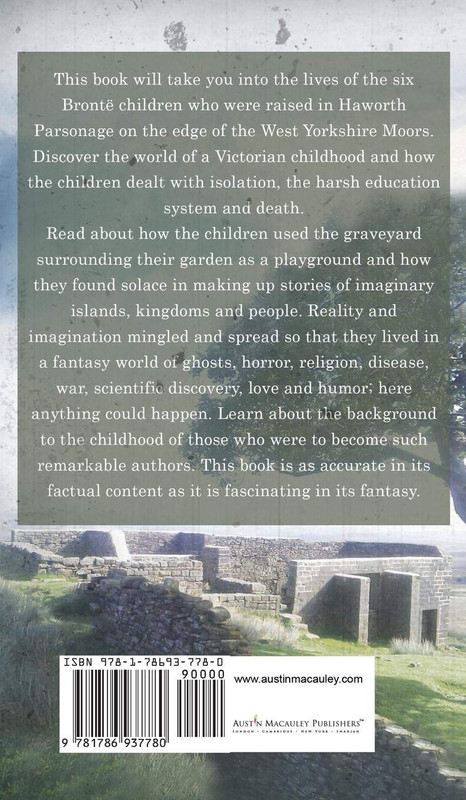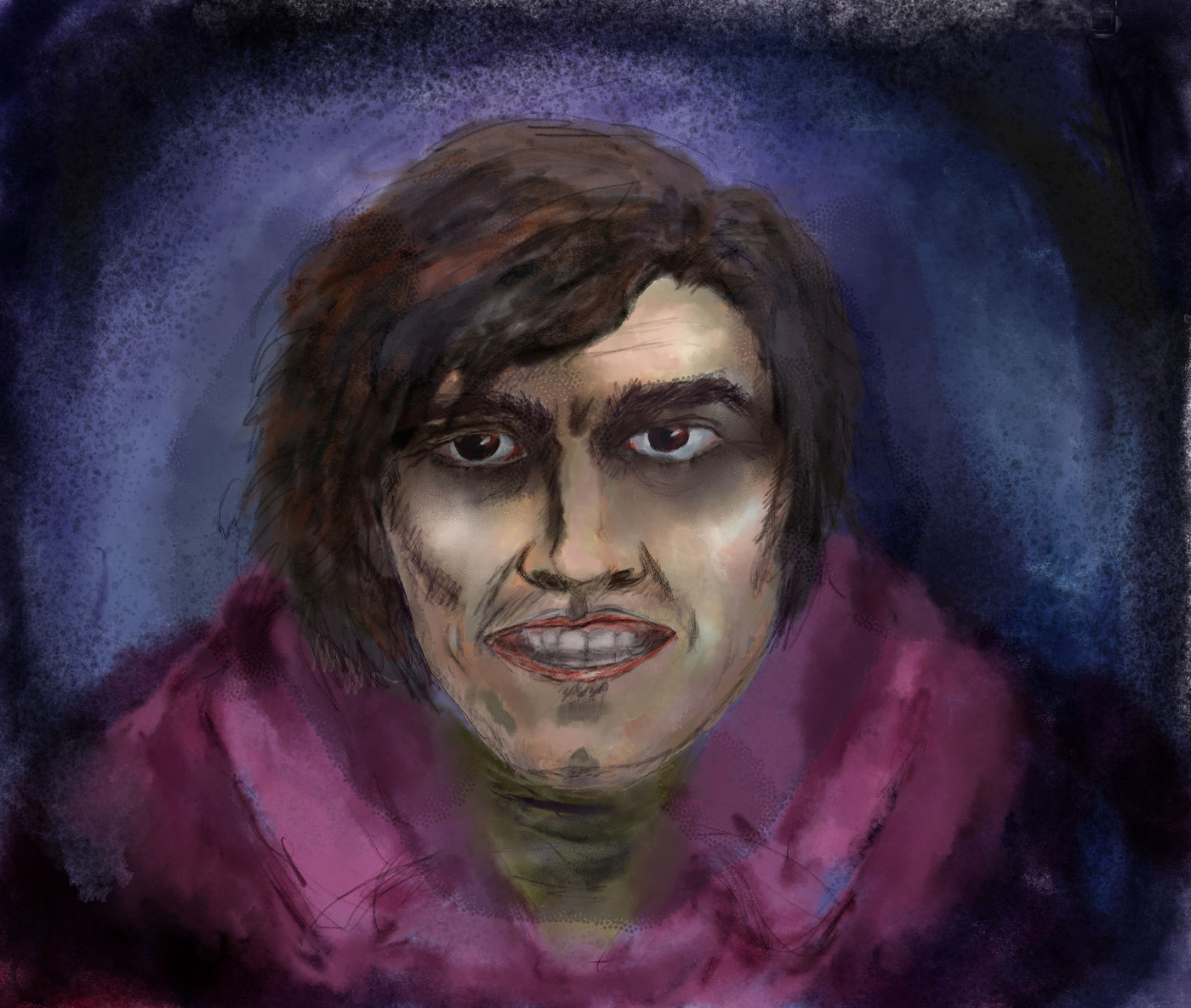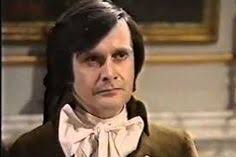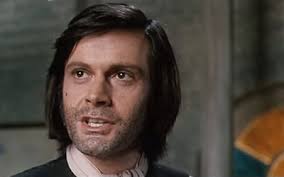Wuthering Heights Reading Group
That's interesting. Could you take a stab at what's boring about Wuthering Heights as opposed to what's interesting about Jane Eyre? I'm enthralled with WH but the older I get, the less I like Jane. I don't know why. Maybe you could give me a clue?
I don't remember David Copperfield - is he the that wanted more?
I've read a lot of Dostoyevsky but I'm already depressed enough.
Claradoon,
In my opinion, Jane is indeed brilliant. My issue, if any is to be taken, is its ending, the contrived introduction of St. John and his family, the Moor House plot, and Jane's decision in the final chapters of the book. (No spoilers). In this regard, although Charlotte is always a brilliant writer, I personally prefer Villette.
Perhaps you don't love Jane as you age, because she doesn't develop the maturity of a modern woman to the extent that Lucy does (Villette), or because we don't learn the truth behind her rage as we would in a story about Bertha Mason, or through Isabella Linton and Catherine Linton Jr. in WH. Jane's choices and opportunities don't resonate with most women, especially given her sudden change of circumstance at Moor House. There is no human psychology to interpret, because the story is told in an autobiographical style and we are led to trust all of Jane's assertions. In WH we are challenged to think for ourselves.
_________________
And in the end, the love you take is equal to the love you make.
Perhaps, in a loose sense, her narrative style can be compared to the eccentricity of Emily Dickinson's poetry.
I'm referring to Brontë's use of a brilliant hermetic and dialectical narrative structure, with time, space and psychology framed by multiple unreliable narrators as an airtight story within a story within a story, like Chinese boxes. I'm consistantly amazed by her literary talent as an artist and 19C philosopher.
_________________
And in the end, the love you take is equal to the love you make.
Their biography and their mysticism were indeed very similar. Imagine if they had studied together in Brussels?
_________________
And in the end, the love you take is equal to the love you make.
Thanks for the link, April! They look like feeli0's style of artwork!
I also like Heathcliff at the grave .. but they're all beautiful. I tried to use the Catherine solo pic for an avatar once, but it was too far away and too misty.
I'm reading Wild Imaginings: A Brontë Childhood now.


Formidable ~ it's told in a fiction style but it's all accurate.
Even better to know I have ancestors in that graveyard!
_________________
And in the end, the love you take is equal to the love you make.
Awesome artwork, thanks for sharing April. Waaaaay better than mine, beautifully crafted and the colours are spot on.
_________________
Not a Moderator.
AQ 40
ASD-1
I just finished rereading the novel. I wrote a 718 word essay summarising my thoughts:
Wuthering Heights stands alone in the history of nineteenth century English literature – and perhaps all other literature of the day – as being, not solely a dirty, vulgar, uncouth novel, but a great one, and one whose greatness was recognised, if not in the lifetime of its author, then shortly following it. It’s a countercultural novel – not in the same sense as those of the humorists of the eighteenth century who, while pointing a finger at bourgeois society and laughing, were still eminently bourgeois in their background and artistic intentions. No – Wuthering Heights is the first great novel in the English literary canon to pose an artistic threat to the very foundations of the bourgeois society in which it was read.
It is difficult to say why this should be the case. In a Europe which had undergone, and was undergoing massive social, political, economic and military upheavals – albeit that Britain was left relatively untouched by these things – it is difficult to see why the first fundamentally countercultural novel to be written by an Englishman should have been written by an English woman – and one of obscure, Yorkshire extraction. It seems that there is something, as neo-Marxists would point out, self-perpetuating about power, and particularly the power of so well-ordered a bourgeoisie as that of nineteenth century England. This, I think, is why Wuthering Heights had to be written by an outsider.
It is also difficult, in consequence of the above, to place Wuthering Heights in the framework of any temporal background or literary movement. On the one hand, it seems of course thoroughly Gothic, and yet even so, there is no comparable work in existence at the time of its publication (1847). With the exception of Mary Shelley’s Frankenstein and, perhaps, some of the works of Poe, there is no Anglophone text in the Gothic movement at this stage – or in any other language or movement, as far as I know – which delights so keenly in the same nightmarish visions of dirt, evil and insanity. Let us not forget, also, that even Mrs. Shelley was polite and bourgeois enough to spare the use of such things as explicit profanity.
No, there is no similarly countercultural work in the English language in the 1840s with which to pair Wuthering Heights for sheer subversiveness. Indeed, Mr. Heathcliff’s delight in torture, revenge and emotional manipulation remind one, almost inexorably, of the Marquis de Sade. In Wuthering Heights, we get a glimpse of hell, not in the seething furnaces of Hades, but on the cold, desolate, interminable moors of Yorkshire – the terror is made all the more real for the fact that we know that this is a concrete, physical place and can envisage the reign, in the distant past, of cruel tyrants such as Hindley and Mr Heathcliff, sanctioned by the inescapability of such an unforgiving landscape. As Dante Gabriel Rossetti, no stranger to the allure of the dark and sinister, put it: “The action is laid in hell, only it seems places and people have English names there.”
But it is, more than the terror it inspires, the sheer inversion of morality that prevails over Wuthering Heights and the Grange that make for the subversiveness of the novel. It seems, upon reflection, that Mr. Heathcliff is the very first antihero in the sense now sanctioned by mass media – the very first torturer, the very first psychopath, with whom we are told we have to sympathise. We “must” sympathise with him because, contrary to the bourgeois, Anglican morality of the time and place that produced him, we are shown Mr. Heathcliff as a real, breathing person. He is a victim of the bourgeois hypocrisy and guile of the day, just as Catherine Earnshaw, that other corrupted soul, is a victim of the subjugation of her sex by the same factitious moral code.
To summarise, Wuthering Heights is an infernal, a Sadean novel, but one which makes itself more credible than the pornographic garbage written by de Sade himself for the reason that it shows us, in quite universal terms, a vision of hell which occupies our nightmares; these are not the delusions or fantasies of a singularly mad and perverted man, but a vision of torment, torture and the infernal which may well occupy all of our nightmares.
Wuthering Heights stands alone in the history of nineteenth century English literature – and perhaps all other literature of the day – as being, not solely a dirty, vulgar, uncouth novel, but a great one, and one whose greatness was recognised, if not in the lifetime of its author, then shortly following it. It’s a countercultural novel – not in the same sense as those of the humorists of the eighteenth century who, while pointing a finger at bourgeois society and laughing, were still eminently bourgeois in their background and artistic intentions. No – Wuthering Heights is the first great novel in the English literary canon to pose an artistic threat to the very foundations of the bourgeois society in which it was read.
It is difficult to say why this should be the case. In a Europe which had undergone, and was undergoing massive social, political, economic and military upheavals – albeit that Britain was left relatively untouched by these things – it is difficult to see why the first fundamentally countercultural novel to be written by an Englishman should have been written by an English woman – and one of obscure, Yorkshire extraction. It seems that there is something, as neo-Marxists would point out, self-perpetuating about power, and particularly the power of so well-ordered a bourgeoisie as that of nineteenth century England. This, I think, is why Wuthering Heights had to be written by an outsider.
It is also difficult, in consequence of the above, to place Wuthering Heights in the framework of any temporal background or literary movement. On the one hand, it seems of course thoroughly Gothic, and yet even so, there is no comparable work in existence at the time of its publication (1847). With the exception of Mary Shelley’s Frankenstein and, perhaps, some of the works of Poe, there is no Anglophone text in the Gothic movement at this stage – or in any other language or movement, as far as I know – which delights so keenly in the same nightmarish visions of dirt, evil and insanity. Let us not forget, also, that even Mrs. Shelley was polite and bourgeois enough to spare the use of such things as explicit profanity.
No, there is no similarly countercultural work in the English language in the 1840s with which to pair Wuthering Heights for sheer subversiveness. Indeed, Mr. Heathcliff’s delight in torture, revenge and emotional manipulation remind one, almost inexorably, of the Marquis de Sade. In Wuthering Heights, we get a glimpse of hell, not in the seething furnaces of Hades, but on the cold, desolate, interminable moors of Yorkshire – the terror is made all the more real for the fact that we know that this is a concrete, physical place and can envisage the reign, in the distant past, of cruel tyrants such as Hindley and Mr Heathcliff, sanctioned by the inescapability of such an unforgiving landscape. As Dante Gabriel Rossetti, no stranger to the allure of the dark and sinister, put it: “The action is laid in hell, only it seems places and people have English names there.”
But it is, more than the terror it inspires, the sheer inversion of morality that prevails over Wuthering Heights and the Grange that make for the subversiveness of the novel. It seems, upon reflection, that Mr. Heathcliff is the very first antihero in the sense now sanctioned by mass media – the very first torturer, the very first psychopath, with whom we are told we have to sympathise. We “must” sympathise with him because, contrary to the bourgeois, Anglican morality of the time and place that produced him, we are shown Mr. Heathcliff as a real, breathing person. He is a victim of the bourgeois hypocrisy and guile of the day, just as Catherine Earnshaw, that other corrupted soul, is a victim of the subjugation of her sex by the same factitious moral code.
To summarise, Wuthering Heights is an infernal, a Sadean novel, but one which makes itself more credible than the pornographic garbage written by de Sade himself for the reason that it shows us, in quite universal terms, a vision of hell which occupies our nightmares; these are not the delusions or fantasies of a singularly mad and perverted man, but a vision of torment, torture and the infernal which may well occupy all of our nightmares.
Well written, Prometheus. I'm so glad you gave this novel another go, and that you can see its power in the ways I have described. Brontë was heavily influenced by German philosophy as well as Shelley and Byron, and she studied in Brussels receiving high commendation for her continental, countercultural devoirs. You may wish to research her poetry and her essays, "Le Papillon" or "Le Chat" in particular, to understand her political sentiment. Brontë's genius is all the more astounding considering she seldom interacted with anyone outside the parsonage walls, and she was said to be reclusive for a majority of her life.
Is(abella Linton)
_________________
And in the end, the love you take is equal to the love you make.
I didn't know Brontë had been to Brussels - or even outside of Yorkshire, to be honest. I can certainly see the German influence, though. There's something somehow German about such a brooding, bitter character as Heathcliff. He could quite well have been a character from a work by Goethe.
| Similar Topics | |
|---|---|
| Anybody want a card reading? |
03 Apr 2024, 8:21 am |
| Tarot reading on my diabetes |
02 Apr 2024, 9:31 pm |
| Is it good that I spent some of my time so far reading ? |
21 Feb 2024, 8:17 pm |
| Group Home |
08 Apr 2024, 6:16 pm |










